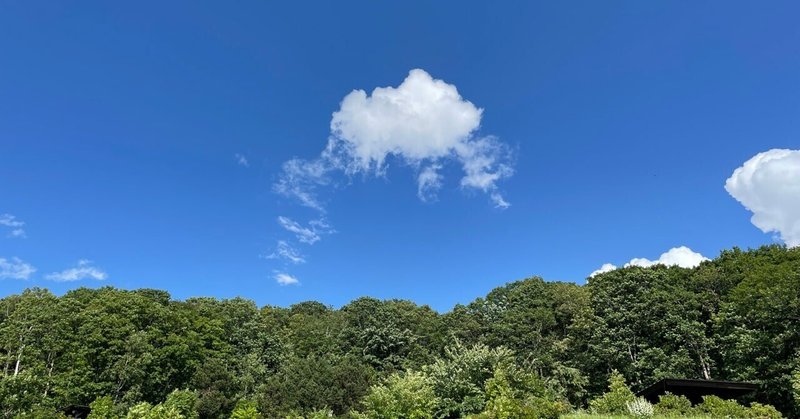
A sketch of "Sense of Wonder"
In a summer, I took part in an educational course, which name was "Sense of Wonder", held by "School for Life Compath" in Higashikawa town of Hokkaido, Japan.
It was a field where we felt the connection with all participants and staff members through dialogue with each other. Compath presented us enough free time for work or sightseeing as well as some programs. I took my chances to experience all attractive programs they prepared. As a result it was a great 8 days fulfilled me through the course which reminded me of my old childhood in my hometown.
Preface
It was August 2022. I participated in the 8 days workcation course. Many things had happened after that. However, I don't handle them here, I just focused on writing my experience during the cource. Although I intended to do it while my memory was fresh, I have done it so late. So, I just felt finishing my lifelong assignment.
A fateful encounter
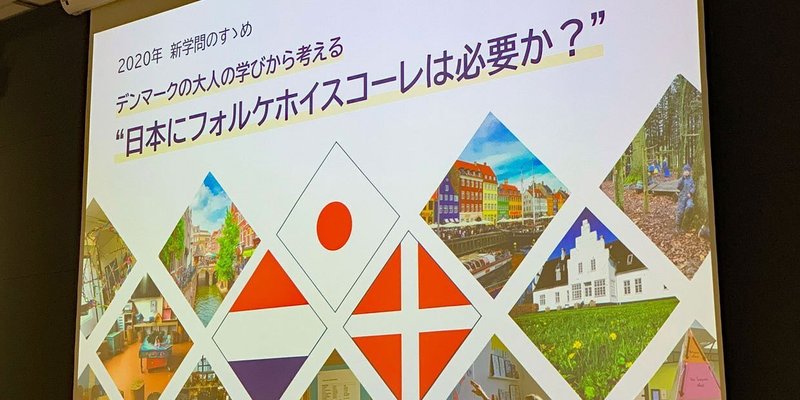
The encounter of the workcation course was a little bit strange. It was January 2020. I listened to a presentation which title was "Is Folkehøjskole essential in Japan?" at Cybozu, Inc. in Tokyo. That was my first opportunity to recognize 'Folkehøjskole (Folk High School)'.
It had been 5 years at that time since I started my own business. I had utilized 'kintone', which was a non-programming platform released by Cybozu, to build business application software for my customers. So, I sometimes visited Cybozu to attend tech-events. I happend to noticed an educational event that was going to be held at Cybozu. Since I was a part-time professor teaching programming as well, it was natural for the event to attract me.
Anyway, I heard 'Folkehøjskole' there but struggled with its pronunciation. I couldn't say its sound smoothly. After many months later, I knew that it meant 'Folk's High School'. They seems to say that 'Folkehøjskole' is 'School for Adults' or 'School for Life' in Japan. Folkehøjskole originated in Denmark. They say that you can be there whenever you like to visit. Everyone, regardless of your age or position in society, can learn arts or skills through communication with participants.
The presention was given by two education-oriented ladies. Many people concerned about education listened to it intently. Looking back the atmosphere, I remember that something was quietly conveyed among the people.
I was impressed by their story that Danish people cherish each idea, therefore, such relationship is basis of the democracy in Denmark. Their enthusiasm on starting their own 'Folkehøjskole' sounded pure. A small light, that I would like to take part in the school, was turned on in my mind. Such my feeling might be produced by information flowing from their Facebook group.
What would you like to be called?
I decided to participate in the workcation course in August, since all the environment arround me was prepared. Its place was Higashikawa town in Hokkaido. Actually I didn't know where it is at that time. I had never heard the name of the town, although I had lived in Sapporo city for two years.
'Oh, it's neighbor of Asahikawa city!' 'Oh, it's a town under the Mt. Daisetsu!' I recognized the town like this, the whole image had been getting clear. Its population was 8,200 which was more than my home town in Fukui prefecture. Moreover, the population was increasing even though Japan's population were decreasing! The town of photography? There were spreading rice fields!? Oh, they have a high school! By contrast, no ones in my home town. I noticed the interest to the town in my mind, after I knew all the these things as well as unique politics there.
An online meeting before the cource had been held on July 29th, 2022. Participants to the cource gathered using 'Zoom', an online meeting tool, which became popular through the COVID-19 pandemic. Anyway, looking back at that time, everyone looked stiff a bit.
Strangely, staff of the meeting required or recommended to change our screen name to a name what you would like to be called. It was quite rare in Japan to use nickname, since we were stranger each other. Dispite the awkward attitude, everyone used their nickname. And unexpectedly, we had continued to use our nicknames throught the cource.
To Higashikawa
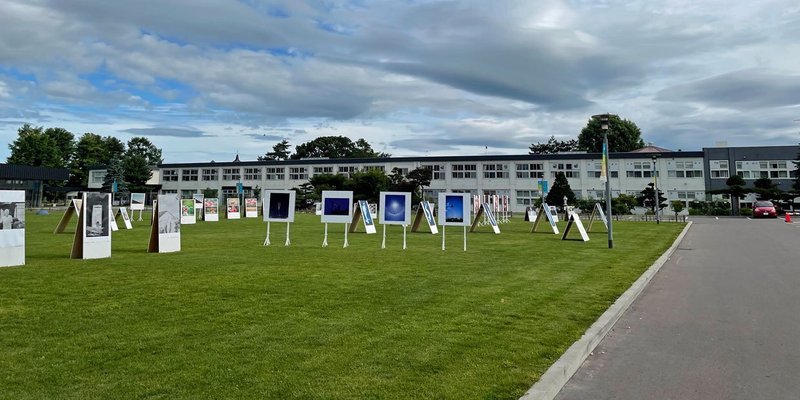
From August 7th to 14th when the warkcation was held, the flight was the most expensive. Moreover, I could not reserve a seat of Shinkansen, a bullet train, for Hokkaido since they were sold out. Lived in Tokyo , I took Joetsu-Shinkanse for Niigata and then stayed overnight on a ferry from Niigata Port to Otaru Port. Early in the morning of August 6th, I arrived at Otaru Port and took the train to Asahikawa, where I stayed overnight again. On the next day, August 7th, I got to Higashikawa by bus from Asahikawa. I felt like I traveled long time.
The lodging facility was 'Centpure', located in the center of Higashikawa. It was the meeting place for the first day, so I went there. Just as it is called a town of photography, the large grounds in front of Centpure are lined with photographs. I arrived much earlier than the meeting time, so no one was there. Tokyo was a hot, humid, scorching hell, but here it was cool. It was cold rather than cool. The lawn in front of Centpure was a large luxurious space for Tokyoites.
The 1st day in nature

It all started in the forest. It was a place surrounded by greenery that you don't often see in everyday life in Tokyo. My retina was covered with green. The 15 participants of the course, several staff members, and some members who stayed for a short time started with a brief self-introduction. Everyone used nicknames here as well, not real names.
Even though it is Hokkaido, it is quite hot in the summer sunshine. I feel nostalgic for having searched for shadows while shifting sheets in the forest. I don't remember what I said or what I heard, but I thought that it was in the form of answering "questions" such as what they wanted from this course, not their social standing.
Overwhelming green was there. Sometimes it was brown, and if you looked up, you would see a blue and white sky. In such a forest, the making of "MEISHI", a business card, began. Each person received a piece of white cloth and made a "business card" out of what they found in the forest. From a scientific point of view, it's kind of nonsense, but for someone like me, who lives in the city and doesn't have the chance to touch branches and fallen leaves, it reminded me of my childhood in the countryside. I searched for a "stage" to display my business card and decorated it with branches and leaves. It turned out to be a business card that was surprisingly well-organized, taking into consideration the color. After that, we divided into several groups and introduced each business card. After sharing their impressions and receiving their questions, I realized that each person had a different point of view.
Thanks to this kind of work, we didn't have to fight over the rice balls for lunch, so we shared two each peacefully. Everyone filled their stomachs and got along with each other.
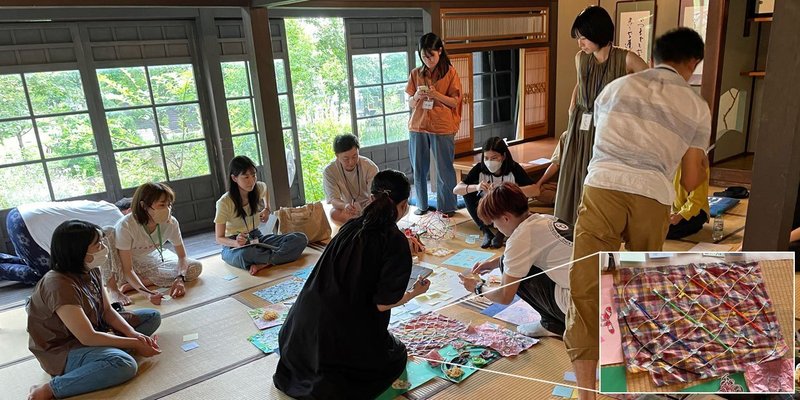
In the afternoon, we made each "8-days VISION." I thought that the vision was an document that would be shown in sentences or diagrams, but it was to create with the given materials (drawing paper, colored paper, mall, yarn, etc.)! Everyone started working quickly, but I had no idea what to make. I was a little impatient. Nothing had come down to me.
No hints, no products. It seemed that I had to use a part of my brain that I had never used before. For me, who was left-brain dominant, time just passed by and my right brain didn't try to work. It couldn't be helped, so with the image of "waves" that came to mind in my left brain, I arranged malls on a cloth with vertical and horizontal stripes to represent another wave, and added waves perpendicular to it with strings, like the comings and goings of life and business. Like that, I tried to make reason.
After completion, we had time to divide into small groups, explain each work, exchange opinions, and discuss things that do not have a correct answer. I realized that here too, people have different points of view. Come to think of it, Hi-kun next to me, one of the participants, was skillfully creating three-dimensional works with braids. I noticed she had a sense of art (later I found out she was an art teacher lol).
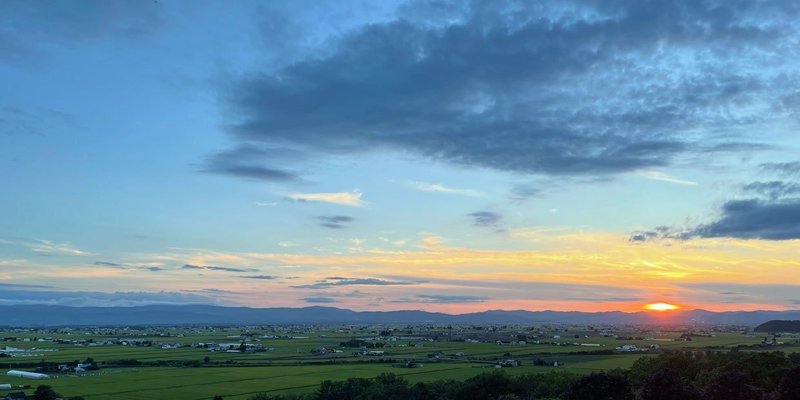
In the evening, we headed to a small mountain. The spacious scenery that we saw from there made me calm. I think that the fact that everyone was familiar with today's work was also a factor to calm down. My parents' house is in the mountains, so I've never seen such a vast expanse of paddy fields. The sight of the setting sun falling over the low mountains in the distance was pure silence. I felt my heart clear.

It's a photo from another day, but I'll also post the sunset I saw in the town. The sunset seen on the plains was like a fire. It may have been the first time for me to see such a spacious sunset, blocked by buildings in the city and by mountains at my parents' house.
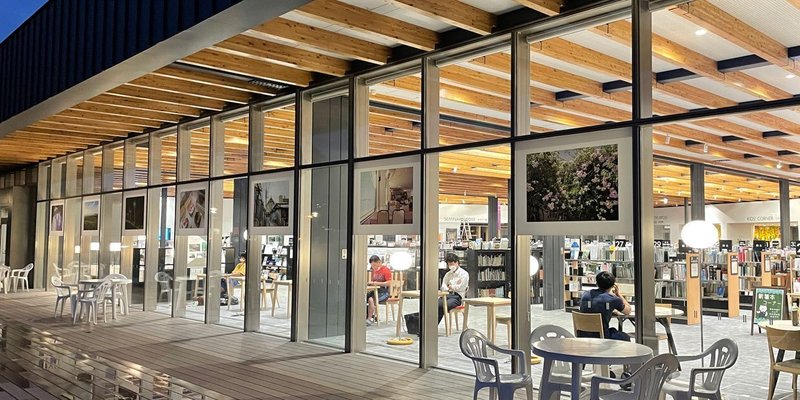
The town's library was radiant with a cutting-edge glow in the sunset. It was really beautiful.

Dinner was prepared by a member who have confidence of cooking. Thank you! I can only thank you. During this course, I didn't help with the cooking (sorry). Because I don't have the skills to help, and I'm waiting for instructions, so I refrained from getting in the way. We didn't have to cook for ourself every day, but when we did, I was grateful to have a fulfilling meal!
When we cooked for ourselves, we split into groups of several people and ate dinner in separate rooms. In this way, this course was designed so that different members could come together in various situations and talk to each other, and to be able to talk to everyone evenly. It may more important to just speak each other than what theme we talk about. Maybe I just don't remember, though. There were still some people whose nicknames didn't match yet, but I were gradually recognizing them.
After the 2nd day
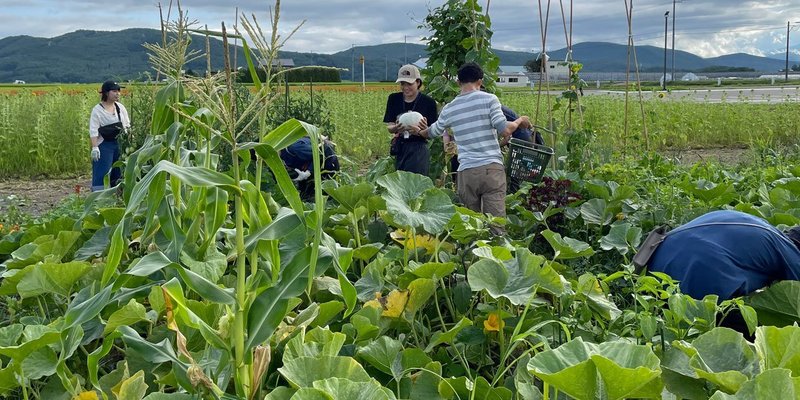
There was a morning meeting every day. It was from 8:30, although it was slightly changed depending on the schedule of the day. By then, I had woken up at a healthy hour to finish my breakfast. I usually got up between 6:30 and 7:00.
And then I had a leisurely breakfast. I didn't have to worry about breakfast because there was leftover dinner from the previous day and bread. The schedule I received in advance said "self-catering", so I was worried that I would be in trouble because I am not good at cooking. However, when he asked a staff member at a meeting beforehand, he said, "Don't worry." In fact, I didn't need to worry. The members and staff naturally surrounded the table and started the morning peacefully. When you live with people, you can create a rhythm in your life.
One morning, I got up early and a few of us went out to "Compath Garden". The cool morning air was fresh. I think it was about 10 minutes by car. Pumpkins, eggplants and other vegetables were growing there. The area of the farm was wide enough to build a house in the city. Onoji, a participant, who don't like tomatoes was recommended freshly picked mini tomatoes, and after hesitating for a while, she boldly devoured them. The joyful expression immediately afterwards was dramtic. “(Tomatoes) are not sticky!” had become a famous saying. I wonder if she, who overcame her cherry tomatoes, still eats cherry tomatoes. Trying is good, isn't it?
It seems that there are only three individuals of pumpkin, but the vines were growing freely in the field. There were also vines that stood in our way. This pumpkin was on the dinner table for the night.
As I was harvesting, I remembered when I was a child, planting potatoes and harvesting corn in the fields of my parents' home. I also remembered that the pumpkin certainly stretched its vines in all directions. In many cases, I used to go to the fields with my mother, grandmother and younger brother. Both my grandmother and mother have already passed away, and the land has been left uncultivated for many years. When I returned to my hometown, I visited the field for the first time in a while and was surprised at how small it was. When I was a kid, I felt so wide.

As the 2nd and 3rd days passed, the members and staff were completely open to each other. At the night's review meeting, a small question was posed. Like, "What are the five things that matter most to you?" "How many years will it take to realize each?" That kind of question was given to us every day, but it wasn't so heavy, it was just a light work. As usual, we divided into groups and shared and exchanged comments. That's how I came to see each person's thoughts, and I also came to understand how I was seen by others.
What is impressive is that "no one denies the other party". Of course, I didn't say, "That's wrong," and I didn't come up with that kind of idea. The task was organized well, but in the first place, I think that the members who participate in this kind of program care deeply about people. Also, everyone listens well. I think one of the reasons for this is that the work is skillful, but basically the members are good at listening. Well, they were more than ordinary people.

The workation course has a lot of free time during the day. I was also going to do my main job, so I brought a PC. Other members also brought their PCs and seemed to be having a meeting. There was a scene where remote work had become the norm.
My biggest concern was the Wi-Fi environment. Since it is basically a space-sharing method, I was worried about whether it would be possible to have an online meeting where packets are exchanged continuously and closely (especially when sharing an access point in the same place). At the pre-meeting meeting, there was an "incident" in which two staff members froze at the same time. As someone in the IT industry, I felt uneasy about the Internet environment in Higashikawa. An alert was ringing in my mind as the "Compath Freeze Incident".
August 8th. I had a business meeting during the free time on the second day of the workcation course. The biggest challenge during the course was this business meeting. Because it was the first time to hold an online briefing with remote work. I usually used a wired LAN that I built myself at home (and company). It was a stable network environment, so it was nothing but nervous to have business talks in a completely "away" environment. I had a trial online meeting with the business partner in charge of sales the day before, so I had a feeling that it would work out somehow. But it was also clear that the "Compath freeze incident" should not be taken lightly. When I checked it with software that can check the signal strength, it was an environment that could not be said to be ideal, with competing Wi-Fi signals scattered here and there.
There were two people in the negotiations. The background was a bright window environment, and the face was backlit and pitch black. I couldn't see theri faces at all. What was more, the Zoom operation was performed by two people side by side on one PC, and only the voice was relied on. It was very difficult. Despite this situation, we explained our system and answered questions, and the conversation progressed smoothly. Although the application was not accepted, it will be considered further. First of all, I was relieved that I was able to have a remote online business meeting safely. After that, I learned that the "Compath freeze incident" was an incident at the staff's home, and I was finally able to relieve my anxiety. Phew...
Asahidake

The fourth day of the course was for Mt. Asahidake (Hokkaido's highest peak with an altitude of 2291m). We took the ropeway up to the point where we could see Mt. Asahidake and took a walk around it. It reminded me of Tateyama, which I visited when I was a student in the Department of Biology at the University of Toyama.
Mr. Otsuka, a mountain guide, taught us the names and ecology of plants. I went to Mt. Tateyama to learn about alpine plants, but I didn't remember anything, and Mr. Otsuka's explanation sounded fresh. Everyone was impressed with each and every one of them, such as the leaves that smell good, the season when "Aleutian avens" grows all over, and the reason why "Siberian dwarf pine" crawls on the ground. In such a case, everyone (especially women?) was admiring at exactly the same timing as "Heh!", and it was a little funny that the points of emotion were the same.
Tateyama has become a tourist spot, but Asahidake is a place where only has one evacuation hut. The hut is said to have been built after an accident. We've heard a little bit about it, so mountains are scary. Partly because of the harshness of the natural environment, but sometimes it feels like someone is watching me. I felt it clearly just by entering the forest road of my parents' house for a while. In towns and villages, we are covered with a veil of safety and do not notice dangers, but in the first place, humans are fragile in nature. I can't help it if it's a bear. Not only these creatures, but in the forest there are eyes from all directions looking at us.
Higashikawa Japanese Language School

One day, a summer festival was held in Higashikawa. A stage for instruments such as drums was build in front of our domitory. People dance surround there. The dance is called "Bon Odori" which is traditional and popular summer festival in Japan.
Actually, the town has Japanese Language School. So, I saw students of the school wore Kimono enjoying Bon Odori there.
Another day, Aoto , a young male participant of the course, was talking with female students of the school. I happened to pass by there. And I heard a girl talk to him "Kakko i-i desu ne" which means that you are handsom aren't you. What a romantic oppotunity it was...
Forest

It was the 6th day, the final stage of the course. Plenty of time was reserved for the handcraft experience from morning until 3:30 pm. I wondered what we would be doing for such a long time, but when I started making spoons and spatulas, I lost track of time and was absorbed in it. It was a rare concentration in recent years! When I looked around, everyone was concentrating and carving wood. If you concentrate on making it like this, you will become attached to your work. Like everyone else, I felt like I wanted to praise myself for my work. I don't remember, but I might have said something like "This is amazing!"
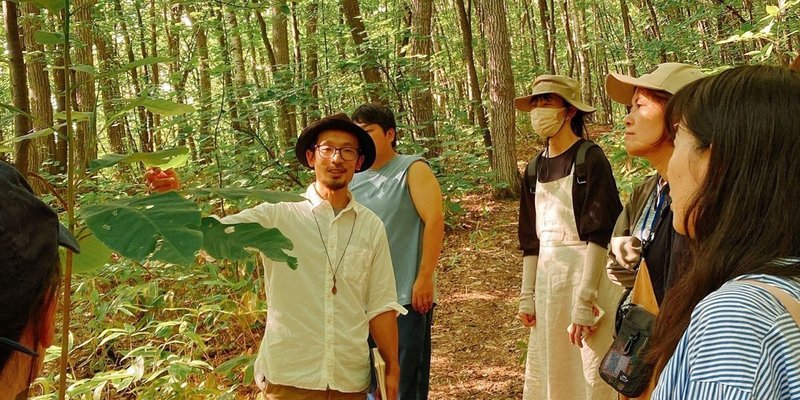
Mr. Araya, the instructor, guided us into the forest. Craft products are also originally living trees. They know which trees are likely to lose the competition for existence in the forest, so they cut down those trees and use them as materials. This allows other trees to grow vigorously. I think it's a good relationship between people and forests. In the past, they coexisted as "satoyama", a woodland close to a village, receiving resources such as firewood from the forest. I'm glad that such a relationship has now climbed into people's consciousness.
If I lived in the city, I wouldn't be able to see things like this in my mind, but here I was able to be conscious of them while touching them with my hands in front of me. In addition, there were opportunities to share those thoughts well, and I was able to create a sense of unity by sharing my thoughts without staying only in myself.
Sense of Wonder

This was the activity for the seventh day. Use a full day. What does "Sense of Wonder" mean? Feeling surprised?
Let's start with revealing it.
I heard this afternoon that there is a book which title is "THE SENSE OF WONDER" by Rachel Carson. In retrospect, the experience of the day was a bit of a reexperience of the experience of the author of this book. "A bit" doesn't mean boring or unimportant. The author's experience has been fertile over many years, so it's meant to be unbalanced unless "a bit" is included.
On August 15th, the day after the course ended, I borrowed this book from the Higashikawa Town Library. And I finished reading it at once after returning to the hotel. She went to the coast of Maine in the United States with her baby nephew Roger in the middle of the night to listen to the sound of the waves. She drew it with a fresh touch. I was surprised by the realistic depiction of her, as if you could see it with words alone. Since the scene depicted is mainly the coast, I, who grew up in the mountains, did not have a real sense of the sea. But when I replaced it with mountains, I fell into the feeling that many of them were depicting my own experiences.
I felt a kinship with her because she was a biologist. The Department of Biology in Toyama, where I was a student, was actively researching echinoderms such as starfish and sea urchins. There was even a professor who called it a “Mecca for echinoderm research.” There was also a sea squirt teacher, so the students in that lab often went to Toyama Bay to collect specimens and procure seawater for breeding. (By the way, I was in the paramecium lab, so I didn't go to the sea in her research. Instead, I made straw broth in a large pot.)
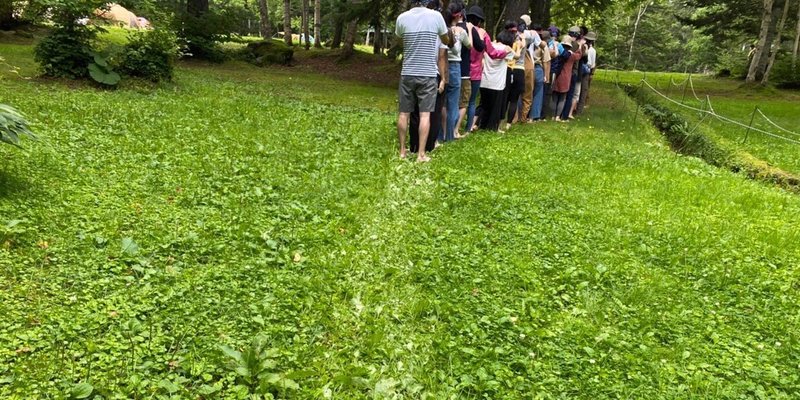
Let's get back to 2022.
It was a campsite in Biei. The ground was almost completely covered with grass. Everyone was asked to go barefoot first. Walking barefoot outside is not very common. Sometimes you go barefoot on the beach, but rarely in the mountains. The season was summer. The ground was warm and fluffy. And blindfolded! Everyone lined up, places their hands on the shoulders of the person in front of them, and follows the person in front (the head person wouldn't be blindfolded). Invisible horror! My legs sensed better. I felt that the ground became even softer. I knew what it feels like to step on grass. Maybe I was sensitive to sound, but I struggled to keep up with the person in front of me with my hands on their shoulders. The mischeavous leader deliberately passed close to the branches of trees, even places with small dents and light climbs. Also, he passed through some watery places. I had to prepare for survival in the tactile world!! It was not Sense of Wonder, but Sole of Wonder!
The words that my junior high school social studies teacher said came to mind. "I used to run around without shoes!" At the time, I had been confused to be said such unrealistic things in modern times (in the 1970s). I couldn't believe that now (in 2022), I experienced the time of that teacher (probably in the 1940s). It must have looked like a strange group to another group at the campsite. But I couldn't be bothered with that. Because I no longer have sight, I should live only on the soles of my feet. . .
I was finally forgiven and was able to remove the blindfold. I was keenly aware of how much I relied on my sight. I was relieved. . .
After that, we also played a game in which we paired up and one of us blindfolded and touched a tree and later guessed which tree it was. We spent a lot of time in nature like that. We were barefoot the whole time. It looked like I stepped on something that looked like a lump of pine resin. I was possessed by a sticky substance around my toes that I couldn't get off easily. I tried to remove it by rubbing it with fallen leaves, but it did not come off completely. So, I've given up on dropping it, leaving it as it was. I was able to wash it off at the hot spring I went to later, though.
While I was doing that, I got a general idea of what the campsite was like, and then I didn't care being barefoot. Everyone ate lunch, had beverages, and talked in such a style, and there was a little atmosphere like a primitive village. Of course, it wasn't like you were going hunting or cooking, so it was just a psued-primitive experience, though.
I also noticed that even if I did something different than usual, I would soon get used to it. The brain adapts quickly to the environment. My junior high school teacher also naturally got thicker skin on his feet, so he probably didn't feel any pain even with some unevenness. From the brain to the soles of the feet, they adapt quickly to the environment. Just as work and study in remote are no longer a special thing due to the corona crisis, it is now possible to have business talks with urban business people in the nature of Higashikawa. Surely, once I decided what I wanted to be, I felt that it wouldn't be so difficult to live in my own way, regardless of the environment at that point.
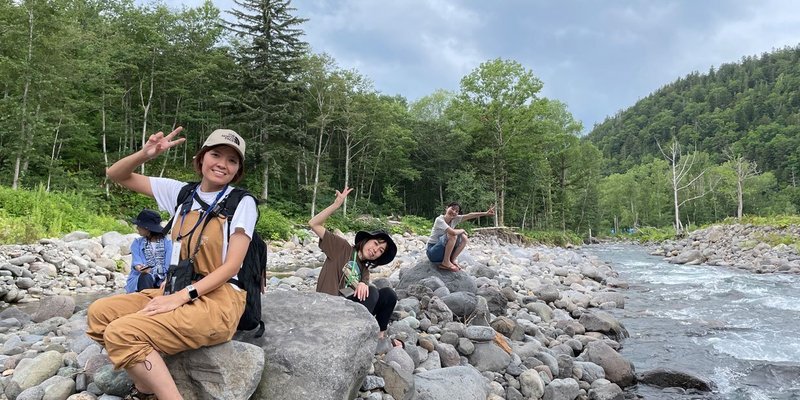
After the campsite, we went to the river. I had a relaxing time at the riverbed. It was about 2m to the sandbank riverbed, but the water was too cold to cross. Even though it was summer, it felt like it was only about 5 degrees Celsius. I could not stand the pain when I put my feet in it only for 10 seconds, probably because of the melted snow from Mt. Taisetsu. The main current was so strong that you couldn't even put your feet in. Then I remembered that I used to play in the river that flew in front of my parents' house. It was deep where the water fell and it was a great fishing spot, and I went to pick up chestnuts in another near place, and it was fun to look for nice-looking stones on the riverbed.
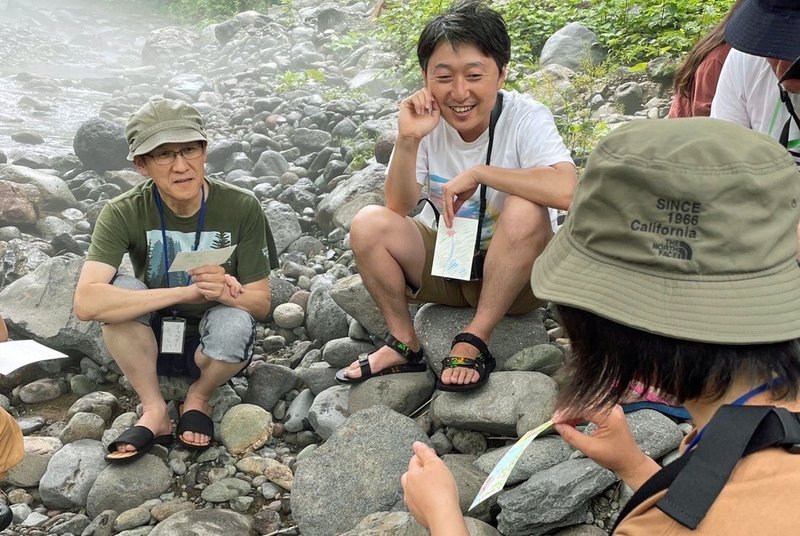
While everyone was enjoying themselves, the Compath staff never forgot asking a simple question. We were asked to draw a picture of something. I think it was a theme like one of your memories through today's experience. I remembered going to the river to collect "akebi", chocolate vine or five-leaf akebia in English, when I was a child. The fact that we spent the day by the riverside reminded me of how I used to go with my brother to pick akebi fruits. So, I decided to draw a picture of the akebi at that time.
Other members and staff also drew scenes of them picking fruit in nature and village-like scenes. This was surprising as most of them were young people. Or maybe people who want to participate in such a program have such a tendency. Another requirement followed. "Write down some words on the back of the picture." So, I wrote that "Let's have fun eating mountains!" Because, in addition to akebi, I went to the mountains to collect mulberries, yams, and bee larvae. Chestnuts, persimmons, peaches, figs, jujubes, and so on grew near private houses. That kind of memory was revived.
We shared as a group as before. When you listen to people talk, you may be told something that fits you. Onoji, had overcome tomatos, wrote, "Towards where my heart moves." And it rang a bell! That was right, it wasn't the time to eat this and that. It's "towards where my heart moves"! For some reason it felt perfect for me. I just wrote it down next to "Let's have fun eating mountains!"
The whole day was an experience I had never had since I was a child. There were also flashbacks of childhood in the countryside. Moreover, the environment is also workable. I started to realize that this place is pretty good.
The last supper
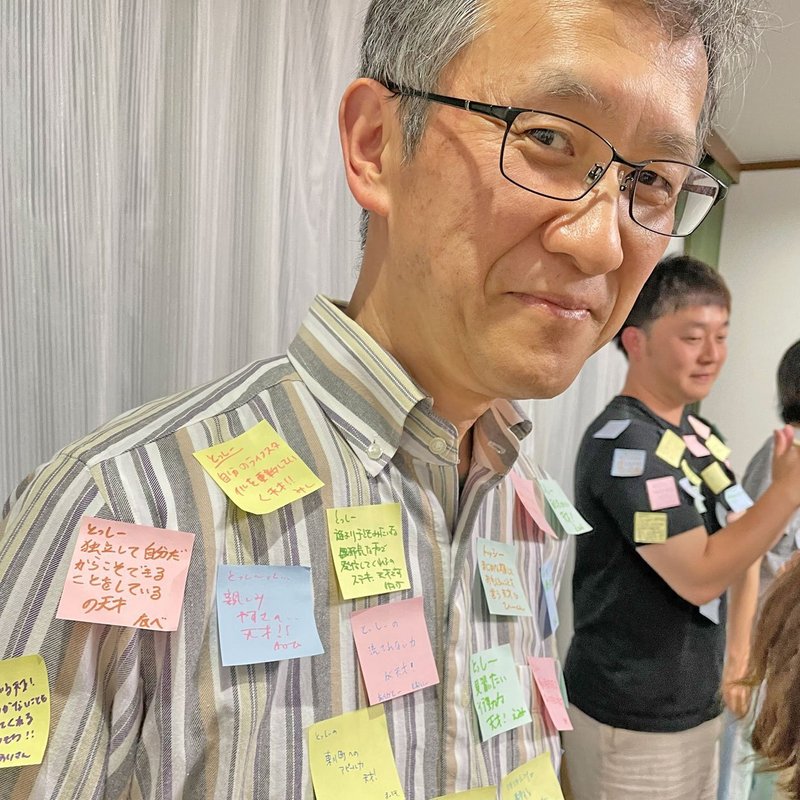
Let's eat and drink together on the last night and have a blast! ... was not the only one. The Compath staff never fails to bring up a subject here as well. The theme this time was "Let's write what kind of genius each of us is!"
On Post-it one by one, I wrote how genius he/she was. Since spending so much time together, I readily remembered who was what kind of person. Later, when I looked at one of the Post-it that was pasted up, it said, for example, "Dear Nacchan, you are a genius with many points of view! Macchan"! ! I was afraid that it would be a shame if I didn't get even one, so I prepared a self-prased version. But I could get 20 sheet of post-it. I was happy.
What was that?

A lot of time has passed since then.
Compath has quietly conveys the importance of "Yohaku" in your life which means having leeway to spend time in a relaxed manner. Based on my experience in the course, I realized once again that there are too many things that I "must" do in my daily life and work. It's like living with duties. Are they really obligatory? You may tend to have a lot of obligations when you live seriously?
I think there is a person concerned ahead of the sense of duty. Are you having a conversation with that person? Are you listening to what the person say? Doing things that really shouldn't be done, or forcing people to make it in time even though the deadline is not strict, may be settled in a natural way as long as they are in the conversation.
I have spent the margins of my life, that is the rest of my life, while thinking about such things. In the world of Sense of Wonder, there is conversation. I check in to see how I am now and check out what happened after the conversation. Of course, just saying what you want to say is not a conversation. Let's ask how the other party is. After the conversation, check out how it went. Spending time completing things in this way may help stabilize your mind.

April 22, 2024. Spring had come late to Higashikawa. The long-awaited Compath House started on this day. The opening party was filled with nostalgic friends from 2022. Looking back, the course was only eight days long. Though such a short period, who would have thought at the time that you have kept in touch with each other after that. While we was planting white birch trees on campus and talking about nostalgia and the future, Kimny, a participant of the 2022 course, cried again like he did on the course. Even I, who never cries, felt tears in my eyes. But I wasn't as honest as Kimuni, so it's just a little bit.
Around this time, cross-exchange with other course participants became commonplace. The problem is the overlap of nicknames. Even casual conversations were prone to confusion. Well, it was a fun misunderstanding, thouth. However, there were some administrative issues, so I decided to call myself "Tosshi the first" on official occasions, lol.
The school building of Compath has "Yohaku", that is margins, that are constantly updated. It's always the case that the atmosphere changes completely, such as creating shelves or repainting the walls. The insects and stingrays I drew have been overpainted many times and disappeared, but some of them still remain after patiently rewriting. The next time you visit the school, I would like you to look for pictures of such animals and plants. If possible, I would like to leave one for each species. I wouldn't say forever, but as long as I'm alive. Well, it shouldn't be that long.
After all, what was that? A lot of white space and time. The participants, who were supposed to meet once in a lifetime, kept meet again and again. Meeting online has become commonplace, and that has helped meeting people in real life even more enjoyable. That was the starting point and the turning point toward the end of my life.
Making a difference
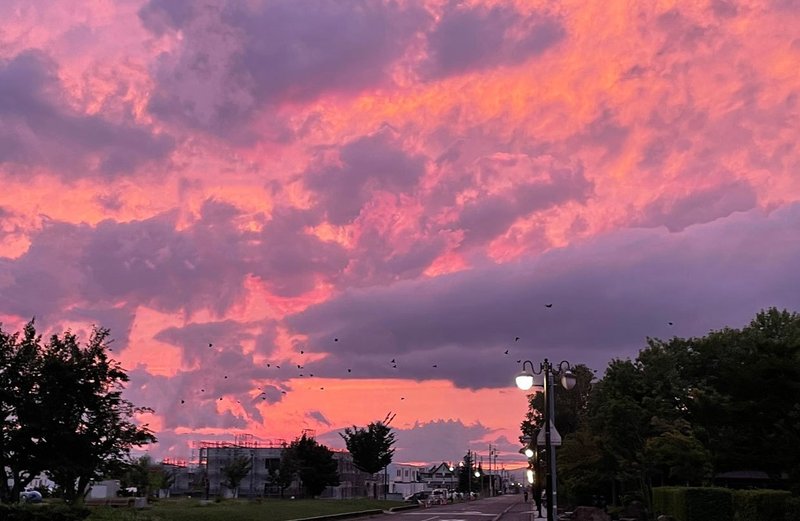
It's been 35 years since then.
There are now schools for adults from Hokkaido to Okinawa where you can experience the margins of life. The name of Folke has become popular in Japan. Some people come from abroad looking for leeway in their lives, and some Japanese go abroad to learn at a Folke. The founders, Saki-chan and Kaoru-san, are also shining with age. If they hadn't gone to Folkehøjskole in 2017, and even if they did, if they hadn't started Folkehøjskole in Japan, the people would have been quite different. I admire both of them for making a difference to people.
And I am grateful to the two of you and my friends for giving me the final difference. What can I say other than happy to be able to end my life with feeling like this.
Now, I'm going to answer the question of 2020, "Is Folkehøjskole essential in Japan?"
Absolutely!
August 7th, 2057.
On the 35th anniversary of the "Sense of Wonder" course 2022.
Tosshi the first.
Information of upcoming Courses
Long Course Winter 2023
Higashikawa, Hokkaido
Jan. 23 - Mar. 24, 2023
Exploring Nature
Higashikawa, Hokkaido
Feb. 19 - Feb. 26, 2023
Workcation course
Kamikawa, Hokkaido
Feb. 23 - Feb. 26, 2023
この記事が気に入ったらサポートをしてみませんか?
